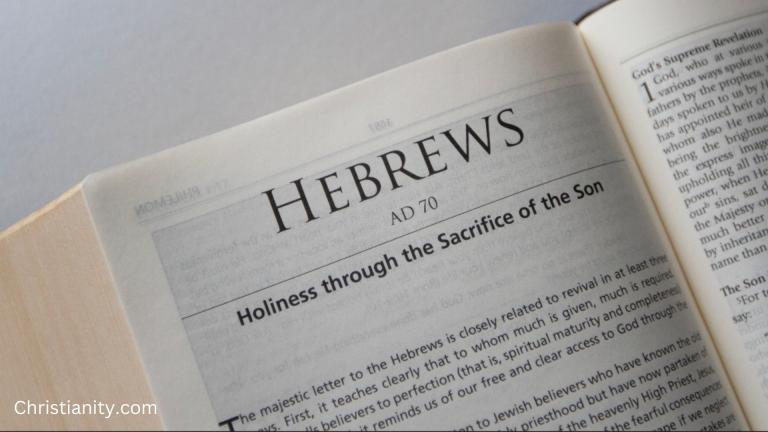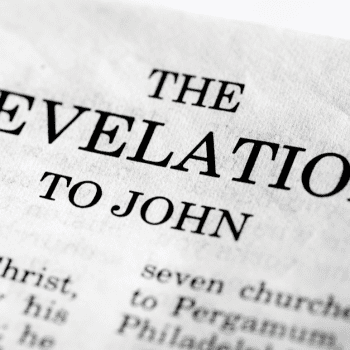Monday: Read Hebrews 12:1-3
The writer of Hebrews now challenges his/her readers to look towards the “great cloud of witnesses” (1) as examples of running with perseverance. The context of their perseverance is their present sufferings. The author’s exhortation is simple: persevere as they did.
The author sets the Christian life in the context of a sporting event (1). That the event calls for perseverance suggests that it is not a sprint but a long-distance run.
The author then transitions from the great cloud of witnesses to Jesus (2). Notice here that Jesus’ perseverance was in the midst of His suffering: He “endured the cross” (2) and despised “the shame” (2). As a result of His faithfulness in the midst of “hostility by sinners against Himself” (2), Jesus then “sat down at the right hand of the throne of God” (2).
It is in considering what Jesus has done and by following His example that we too “will not grow weary and lose heart” (3).
Questions to ponder/discuss:
- Today’s shorter reading is intentionally designed to give you more time to read and reread again and again today’s passage. Over the course of the next week, make it your aim to memorize this passage. Begin today by reading as many times as you can. You may even want to use an online Bible site such as BibleGateway.com to read the passage in different translations.
Tuesday: Read Hebrews 12:4-13
Whatever the situation of the readers was, their suffering had not yet resulted in any deaths (4). The author of Hebrews views their suffering as an act of God’s discipline (5-11). We suffer, he/she argues because every parent disciplines the children whom they love (see Prov 3:11-12). In fact, to not be disciplined is to be an illegitimate child (8).
The exhortation to “strengthen the hands that are weak and the knees that are feeble, and make straight paths for your feet, so that the limb which is lame may not be put out of joint, but rather be healed” (12-13) continues the athletic contest imagery. It is easy to become fatigued and strained in the midst of an endurance race, but the victor must push through and persevere.
The goal of all this is stated expressly, we are to “share His holiness” (10).
Questions to ponder/discuss:
- Have you had experiences (and to some extent we all have we just may not have recognized them as such) in which God carried you through a difficult time? If you are willing/able, share with others your experience. Sometimes remembering them, or learning from others’ experiences, gives us the encouragement we need to endure.
Wednesday: Read Hebrews 12:14-29
The author of Hebrews begins to bring the book (letter/speech) to a close with warnings and encouragements that are vital so that we might “share His holiness” (12:10).
The author begins with “pursue peace with all” (14). This is an important first step towards pursuing “the sanctification without which no one will see the Lord” (14).
The reason for moving toward sanctification is then detailed. We have not come to Mt Sinai (18-21; see Exod 19:5-6, 16-24; 20:18-19) but to Mount Zion (22-24). Mount Zion (which later becomes synonymous with Jerusalem) was the destination of the Israelites when they left Egypt.
For the author of Hebrews, however, we have not simply arrived in the promised land, but through Jesus, we have come to the “heavenly Jerusalem” (22), which is “the city of the living God” (22). This is the city that the OT saints looked forward to (11:10) and it is the city to which those in Jesus have already come.
Again the author appeals to the greatness of the fulfillment that has come in Jesus. Thus, this heavenly city is where tens of thousands (myriads) of angels (23), as well as the “church of the firstborn” (24), are gathered.
The notion of “firstborn” in the Scriptures is very significant. Essentially, the “firstborn” is the child that receives a double portion of the Father’s inheritance. Whereas, in the OT, Israel was chosen to be God’s “firstborn” (Exod 4:22), now, through Jesus, all of God’s people of deemed the “firstborn” (see Rom 8:29).
The author then inserts a strong warning. If the people of God in the OT did not escape judgment when they “refused” God, how “much less will we escape who turn away from Him who warns from heaven”? (25).
Questions to ponder/discuss:
- “Sanctification” is one of those “Christianeze” words that is often tossed around with little substantive meaning behind it. In this passage, it takes on a practical or lived holiness, “which flows from a genuine dedication to his service and obedience to his will.”[2]
- Too often the Christian understanding of “salvation” is limited to “getting saved,” when the call of the gospel is “follow Me” (Mark 1:17). And to follow Jesus is via the way of the cross. The way of the cross is much more than just dying at the hands of a nation when called upon. Instead, it is a daily dying to self. This is part of the process of “sanctification.”
- The necessity of sanctification is evident in the closing words of 12:14, “without which no one will see the Lord.” Of course, sanctification does not occur simply by trying harder. It is the result of God’s grace and the presence of the Holy Spirit in our lives. I encourage you to make growing in holiness and the likeness of our Lord the focus each day.
- The proper response to God’s grace is “thankfulness” or “gratitude” (28). What are you thankful for?
Thursday: Read Hebrews 13:1-14
The author of Hebrews continues his/her list of what serving God looks like. The list includes: loving one another (1); showing hospitality to strangers (2); remembering those “in prison” and “those who are ill-treated” (3); holding marriage in honor (4); being free from the love of money (5); and, remembering their leaders and imitating their faith (7).
In an age in which travelers were often dependent on the hospitality of locals, the showing of hospitality was an excellent opportunity for Christians to demonstrate the love of Christ to those in need. Of course, we must remember that many of those in the ancient world lived day-by-day. This means that to extend hospitality may mean that one must give a portion of one’s own food. This was no small commitment. Note: the reference to entertaining angels (2) likely has the account of Abraham in Genesis 18-19 in view.
The caring for prisoners and the “ill-treated” should be read together. Most individuals in Roman prisons were those who were unjustly held but lacked the power and influence to defend themselves against their more powerful accusers or a Roman official who may have imprisoned them.
The note that Jesus “is the same yesterday and today and forever” (8) is a reminder that the Jesus which was preached to them by the first leaders has not changed.
The false teachers that have encroached on the community to whom Hebrews was first addressed, however, are preaching a Jesus that does not conform to what they were first taught (9).
Questions to ponder/discuss:
- It is easy for us to read these exhortations and to check off a list of “did that” or “need to improve on that.” But I wonder if we are not taking seriously enough the exhortations given here. For example, showing hospitality is not much of an issue for us today. Most people stay in hotels or with relatives when they are in town. Rarely, does one even hear of a person needing a place to stay as they travel through. If we just checked a box, this one would be easy to check. But what if the Scriptures are calling us to a higher ethic? What if we are to give more freely to others in need as a general practice? When we take this approach, suddenly the exhortation to be “free from the love of money, being content with what you have” (5) becomes more relevant. Pray through this issue and ask God to help you be free from the love of money and to discern if you have enough.
Friday: Read Hebrews 13:15-25
The author continues the closing of the body of the letter/speech by adding that we should continually offer “a sacrifice of praise to God” (15). Lest we think that this exhortation refers to an act of worship that happens on a Sunday morning, the author asserts, “do not neglect doing good and sharing, for with such sacrifices God is pleased” (16). In adding this saying, the author affirms that true worship manifests in the way we serve others (15). Doing good to others is how God desires that we express gratitude towards Him.
The body of the letter/speech closes with an exhortation to “obey your leaders” (17). After all, the author adds, “they keep watch over your souls as those who will give an account” (17). This is a powerful assertion: both for the pastor/leader and the congregant.
The letter comes to a close in 18-25 (if the body of Hebrews was a speech, then 13:18-25 has been appended to it in order to make it function as a letter). The author begins by asking for prayer (18) so that they may have a clean conscience (18).
The author then closes with a benediction (20-21), a final exhortation to listen to what he/she has said (which included some things that we difficult: see 5:11), some closing greetings (23-24), and a blessing (25).
Questions to ponder/discuss:
- It is important to note that the offering of “a sacrifice of praise to God” is done in conjunction with “doing good and sharing.” It is often not what we do in church that is our sacrifice but what we do outside of it.
- We serve God by “doing good and sharing” (16). As you go through this day/week, seek opportunities to do “good and sharing.” Then share with others what the experience was like.
- Praying for our leaders is a vital component of the kingdom of God. Make an effort to do so regularly.
[1] This guide is meant to be done either as a group study over the course of 2 or 4 meetings (Day 1-5; 6-10; 11-15; 16-20) or as a private devotion over the course of 4 weeks (or a calendar month—5 lessons per week).
[2] Peterson, D. G. (1994). Hebrews. In D. A. Carson, R. T. France, J. A. Motyer, & G. J. Wenham (Eds.), New Bible commentary: 21st century edition (4th ed., p. 1350). Leicester, England; Downers Grove, IL: Inter-Varsity Press.
Our goal is to keep these posts free of charge. I do not intend to ever hide them behind a paywall. I can only do this if those of you who have been blessed by them and can afford to give ($5, $10, $25, or more/month) do so. You can give a tax-deductible contribution by following this link.
Please share this post and let others know about determinetruth.
If you wish to view this blog on your smartphone through the Determinetruth app simply download the “tithe.ly church” app on your smartphone and insert “determinetruth” as the church name you wish to follow. Once it is loaded, simply click on the “blog” icon and it will automatically load.
If you would like to have Rob speak at your church or organization in person or via zoom, please let us know by filling out the contact info on the Contact me tab on this site.














